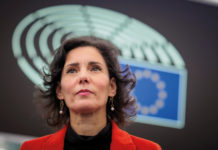Economic Outlook
Second largest economy in Africa after South Africa with a pre-pandemic growth rate of 5.3% in 2018, The Arab Republic of Egypt is a middle-income country with one of the highest growth rates on the continent (+4% on average per year over the last 10 years). The land of the Pharaohs has seen a strong and resilient economic growth since its reforms in 2016. It is the only country in the region and one of the very few in Africa to record a positive economic growth in 2020, estimated at 3.6%, despite the health crisis. Although lower than the 5.6% of 2019, it did not enter a recession thanks to a high domestic consumption. Proactive measures taken by the government to address the crisis and support the most directly affected sectors helped mitigate the economic and human impacts.
The country has succeeded in significantly lower inflation from 23.5% in 2017 (following the new economic reform and exchange rate liberalization programme) to 13.9% in 2019 and to around 5.7% in 2020, the lowest in 15 years. This highlights the government initiatives to combat the economic effects of the pandemic, such as the control of food prices. According to IMF’s forecasts, the GDP growth is expected to lower to 2.5% in 2021 due to the prolonged impact of the pandemic, mainly the lack of tourism, and return to 5.7% in 2022, subject to a global economic recovery. The inflation rate is estimated to continue decreasing at 4.8% in 2021 but is expected to grow back to 7.2% in 2022.
The public sector plays a dominant role in the economy, accounting for around 30% of the economic activity and 56% of investment (all public sectors combined). The army is also an important economic player, including in the civilian sector. Moreover, the inclusion of the informal sector, which would represent 50% of total employment, would increase the GDP by at least 40%.
Although it has a rather diversified economy, Egypt has 4 main sectors contributing largely to its economic growth: the Suez Canal, tourism, remittances from the diaspora and hydrocarbon sales. The main contributors to the GDP are the manufacturing industry (16%), real estate/construction (16%), agriculture/forestry/fishing (11.5%) and extractive industries (10%).
The vital importance of the Suez Canal for world trade has never been clearer than in March 2021 when it was blocked for almost a week. It is considered as one of the most important bodies of water in the world as it is the most direct and fastest link between Europe and Asia. Around 12% of global trade passes through the Canal, representing over USD 1 trillion worth of goods every year (around 19.000 ships per year). During 6 days in March, 422 ships were blocked from passing the Canal and the losses for Egypt were estimated at around USD 12 to 15 million per day. According to Allianz, each blockage day of the Suez Canal would decrease global annual trade growth by 0.2-0.4% and cost USD 6 to 10 billion. Nevertheless, in the FY 2020/2021, the Suez Canal netted Egypt a record USD 5.84 billion.
In September 2020, Egypt issued its first sovereign green bond in the amount of USD 750 million with a maturity of 5 years. The country became the first country in the Middle East and North Africa to launch a green bond, to demonstrate Egypt’s commitment to the United Nations’ SDG and following its development strategy Egypt Vision 2030.
COVID-19 measures
Effective since September 2020, the Income Tax Law was amended in respect to the Stamp tax, the Capital gains tax and the withholding tax on dividend distributions. The cost of transactions in the Egyptian Exchange (EGX) has been reduced and all spot transactions are exempted from stamp duty.
Other company-specific measures, introduced in 2020, to fight the crisis are:
- The price reduction of natural gas and electricity for industrial use;
- The introduction of a credit line for tourism companies;
- A one-year deposit programme with a 15% interest rate by the National Bank of Egypt and Bank Misr.
With the goal to “build back better” the authorities have announced key ongoing initiatives:
- Better governance through public administration reforms;
- The development of the bond market to facilitate trading and attract investors;
- The sustainable development of transportation, energy and water management, through the introduction of sovereign green bonds;
- The advancement of the digitalization of the education, healthcare, justice, tax and customs services and other government services;
- The improvement and development of infrastructures, mainly through public-private partnerships;
- The development of rural areas as part of Egypt Vision 2030.
President Al-Sisi announced the allocation of an EGP 100 billion (USD 6.4 billion) fund, equivalent to 2% of the GDP, to support affected businesses in the tourism industry and manufacturers, exporters and aviation companies. It also allowed greater health spending and the expansion of social safety nets, such as an exceptional grant to irregular workers.
Foreign Direct Investments
Despite the pandemic, Egypt remained the main recipient of FDI in Africa, albeit with a serious reduction of 35% in 2020 compared to 2019. The main investment sectors remain largely directed to natural resources, especially with the discovery of the Zohr offshore gas field and the development of various projects such as the Qattameya field project or the Baltim South West offshore project, all attracting significant foreign investments. Belgium is the second largest investor in Egypt with 14.9% of FDI in FY2018/2019, but far behind the UK with 41.2%. FDI are mainly in the oil industry (61.9%) followed by the financial services (10.5%), manufacturing (9.9%), real estate (5%) and construction (4.2%).
The main factors contributing to the large FDI in Egypt are its strategic geographical position, a skilled and cheap workforce, considerable energy reserves, a large domestic market and the successful reforms undertaken since 2016. Although the authorities have set up special economic zones with business-friendly regulations such as tax incentives, facilitation of administrative procedures, etc. it is complicated to register a new company outside these zones. Egypt ranked 114th out of 190 countries in the 2020 Doing Business report with a DB score of 60.1, a 6 places increase compared to 2019. The country is especially badly ranked in the Doing Business categories of Trading across Borders (171st), Enforcing Contracts (166th) and Paying Taxes (156th). It is however better ranked in topics of Protecting Minority Investors (57th) and Getting Credit (67th). Overall, since 2008, most of the reforms in Egypt made it easier to do business, by introducing an online system for filling and paying of corporate income tax and value added tax or by improving the reliability of electricity supply, to only cite 2 positive changes of the last year.
Leading sectors
- Agriculture
- Building construction
- Crop solutions
- Cybersecurity
- Dairy products
- E-commerce
- Energy efficiency
- Fintech
- Hydrocarbons
- Livestock and aquaculture solutions
- Medical devices
- Medicines and biotech
- Mining
- Sustainable city/new towns and network industries
- Transport infrastructures
Sectors of interest
Agriculture
Egypt’s agriculture is mainly concentrated along the Nile Valley, the Delta and some oases and arable land in the Sinai due to the extreme aridity of the rest of the country, representing only 3% of the total land surface. The country’s crops production has increased by more than 20% over the past decade but at a lower rate than the increase in population growth. The sector accounts for around 11% of GDP and about 24% of employment and over 50% of jobs in Upper Egypt are related to agriculture. Most farms are small-scaled and still use traditional methods. The main crops are cereals (rice, wheat and maize), cotton, sugar cane, sugar beets and beans.
Agriculture accounts for around 20% of exports but the country still imports about 40% of the food it requires. A better use of modern technologies, fertilizers or irrigation systems could drastically transform the sector and allow it to play an even larger part in the economy and therefore reduce the food import bill (USD 6.3 billion in 2019). It was the most resilient sector during the pandemic.
As the government focuses on food security, Egypt launched major national land reclamation projects like the New Delta, announced at the beginning of the year. Considered as the largest agriculture project in the history of Egypt, the area of more than 2 million acres allocated to wheat, corn and vegetables will provide jobs for over 5 million people. It will also relieve pressure on the current agricultural lands along the Nile Delta, suffering from depreciation and erosion. The project will require colossal service facilities, a modern road network and various infrastructures. It is scheduled to be completed within 2 years. The government has launched multiple mega agricultural projects across the country, such as the Nubaria Project, Toshka Project, El Salam Canal Project or the El Owainat Project.
To further boost the agricultural production, the authorities have launched a national greenhouse programme, which saw already the construction of over 2600 greenhouses along the country’s northern coastline.
There are also projects to set up fisheries in the Mediterranean and Red seas.
Petroleum and mining
With the oil and gas industry contributing to 27% of GDP in 2019 (down to 24% in 2020), it is a key pillar of Egypt’s economy.
Crude oil exploitations are located in the Western Desert, the Gulf of Suez, the Eastern Desert and the Sinai Peninsula, by order of importance and the production stood at 686.000 barrels per day (2019). It is estimated that Egypt has around 3 billion barrels of oil reserves. Nevertheless, the country is still a net oil importer since 2006 but the authorities aim to return to self-sufficiency by 2023.
With its nine refining facilities (all partially or entirely state-owned) Egypt has the largest refinery capacity in Africa at around 800.000 bpd and the majority of the production is for local consumption. The government aims at increasing its refining capacity to supply the local demand but also to become a more important international actor. The Mostorod Refinery facility inaugurated in 2020, the expansion projects at the Middle East Oil Refinery and at the Assiut Refinery expected for 2022 are clear proofs of the government’s objective.
Around 60 international oil and gas companies operate in Egypt, all in joint ventures with the national entity Egyptian General Petroleum Corporation (EGPC) and production-sharing agreements with its subsidiary companies to exploit oil concessions.
The natural gas reserves estimated at 2.14 trillion cubic meters are exploited in the Mediterranean Sea, the Western Desert, the Nile Delta and the Gulf of Suez. The largest gas field is the offshore Zohr field in the Mediterranean Sea with an estimated 850 billion cubic meters. Egypt managed to stop importing LNG in 2018 and started exporting again beginning of 2019 thanks to the constant increase of production.
Egypt is rich in an abundance of minerals resources such as gold, copper, silver, platinum, uranium, zinc and more precious and base metals. Most of the resources are found in the Eastern desert and the Sinai Peninsula. The sector accounts for less than 1% of GDP but recent public policies prioritisation and initiatives were designed by the authorities to attract investments and mining is therefore set to become one of the fastest growing and most promising sectors of the country. The reshaping of the industry and its new legal framework brought in line with international norms is a major first step to attract investors.
All these expansions and increases in production will require similar expansion and modernisation of infrastructures for Egypt to take fully advantage of its potential, especially in the mining sector. Priorities have been set in the processing and value-added manufacturing capabilities and in the human capital development.
Information and Communications Technology (ICT)
Egypt’s ICT sector has one of the fastest rates of expansion across all economic sectors and the country is considered as a leading global outsourcing destination. Its contribution to the GDP increases yearly (3.5% in FY 2018/2019 and 4.4% in FY 2019/2020), as well as the investments in the sector (USD 3.5 bn in FY 2019/2020). The COVID-19 crisis has been a pivotal driver of growth for the sector and the digital transformation agenda of the country (Digital Egypt). 75 public services have been digitalised and the authorities aim to reach 170 by the end of 2021.
Under its Vision 2030 plan, the Egyptian government is actively investing in the development of the telecom infrastructures (USD 1.9 bn nationwide upgrade package), through public-private cooperation and structural reforms. The government also focuses its action on the human capital development by offering government-sponsored online capacity-building and training initiatives (ex. Future Work is Digital).
As the country continues to digitally develop, opportunities will arise in the following sectors:
- Smart cities: Egypt plans to build 50 smart cities by 2050 and has already started the development of over 20 of them, such as the New Administrative Capital (NAC) project to replace Cairo.
- Automation and Industry 4.0: Egypt is seeking to develop and modernise its industry by shifting to new technologies such as IoT, robotics, nanotech, AI, etc. The government created the Applied Innovation Centre in 2020 to promote the use of those new technologies.
- Outsourcing: Egypt has a young, low cost, multilingual tech-savvy workforce already experienced in Business Process Outsourcing (BPO) and enjoys a key geographical location between the Americas, Europe and Asia and has been developing very niche high-value IT services for years.
Pre-pandemic fiscal and economic reforms in the ICT sector have allowed the country to increase internet penetration and facilitated business continuity. Coupled with the continuation of the development of the sector during the crisis, Egypt is emerging from the pandemic with new technologies and ICT services at the heart of its economy.

Passionate about environmental and sustainable development concerns, I never miss an opportunity to analyze, understand and talk about the challenges of our time, everything related to the economic and social development of the South and the relationship between society and the environment.
Want to share your thoughts? Let’s meet on LinkedIn!
![[:nl]Zohr,Gas,Field,In,Egypt[:]](http://perspectives-cblacp.eu/wp-content/uploads/2021/11/02-696x522.jpg)


